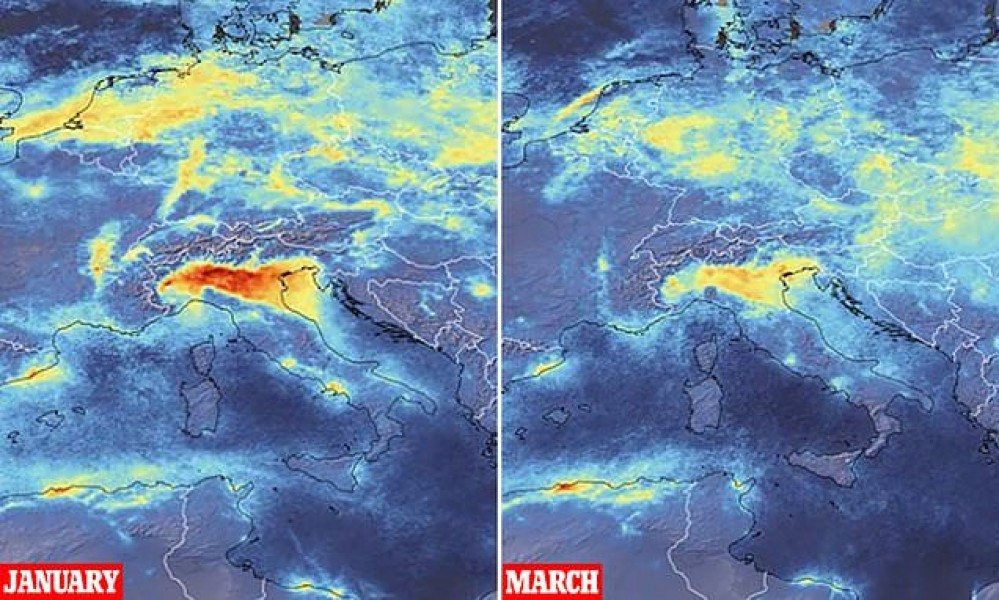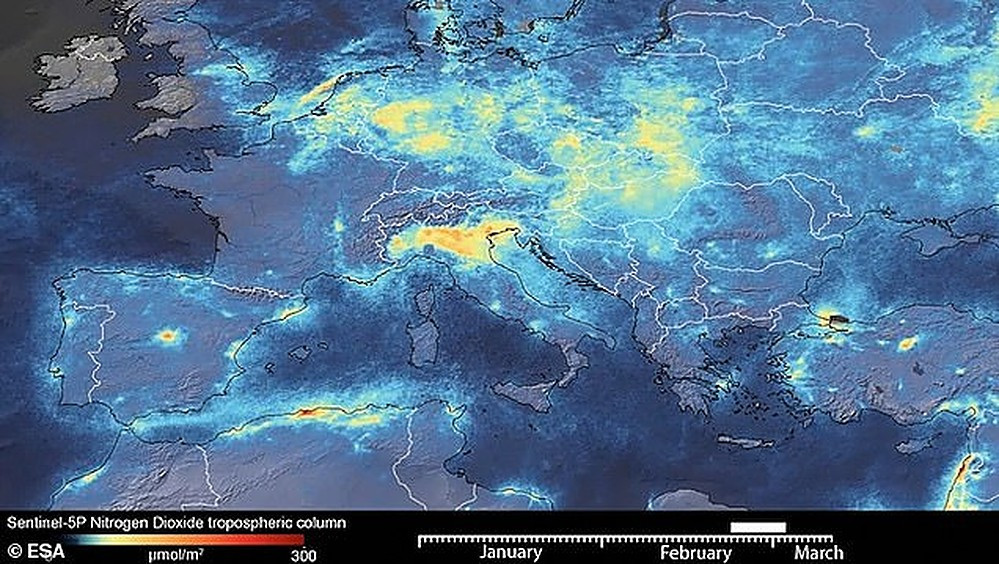

COVID19 Lockdowns Cause Huge Fall in Air Pollution
Monday 30th of March 2020
COVID19 Lockdowns Cause Huge Fall in Air Pollution
‘Nature is sending us a message’, said UN’s environment chief, Inger Andersen. Humanity was placing too many pressures on the natural world with damaging consequences, and he warned that failing to take care of the planet meant not taking care of ourselves. This global pandemic could be a lesson to the world.


Ever since the coronavirus was found in Wuhan in December 2019, it continues to spread across the world and people are being forced to stay at home, factories closed down and travelling restricted. This had caused pollution levels to fall drastically. Waters are clearer, skies look blue, trees more and green and wild life returns.
By one conservative estimate, cleaner air has saved about 50,000 lives in China alone over these past few months. And in Europe, cities including Brussels, Paris, Madrid, Milan and Frankfurt showed a reduction in average levels of noxious nitrogen dioxide from 5 to 25 March, compared with the same period last year, according to new satellite images.
The satellite images, released by the European Space Agency, show the changing density of nitrogen dioxide, a harmful gas emitted when fossil fuels are burnt at high temperatures, most commonly at power plants and in motor vehicles.